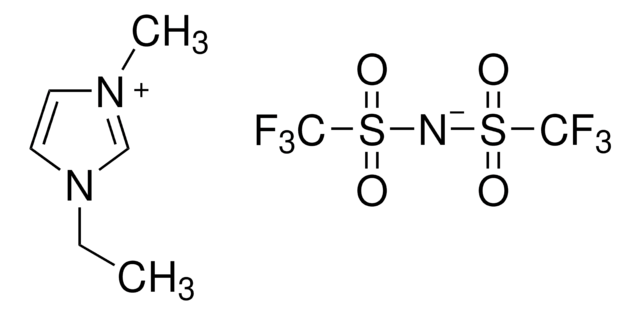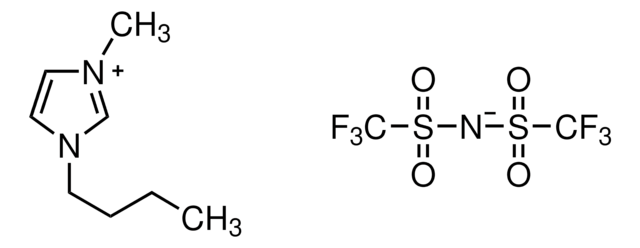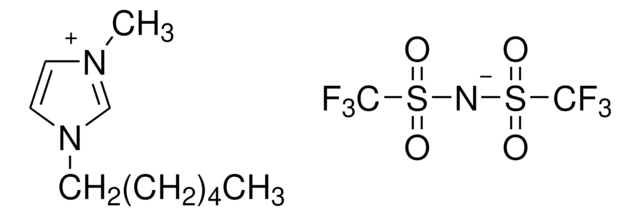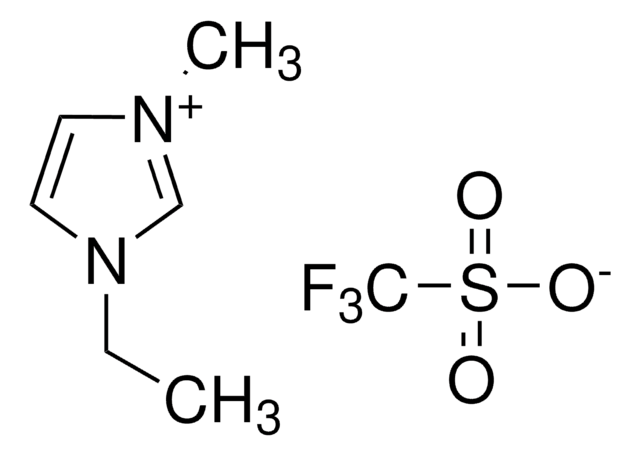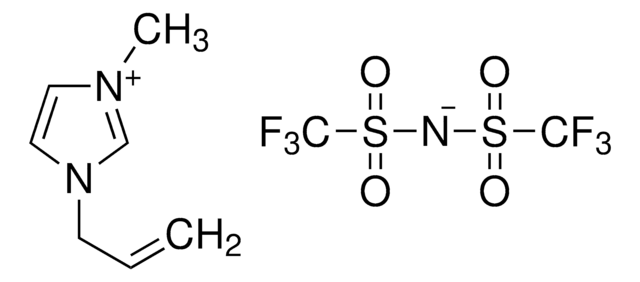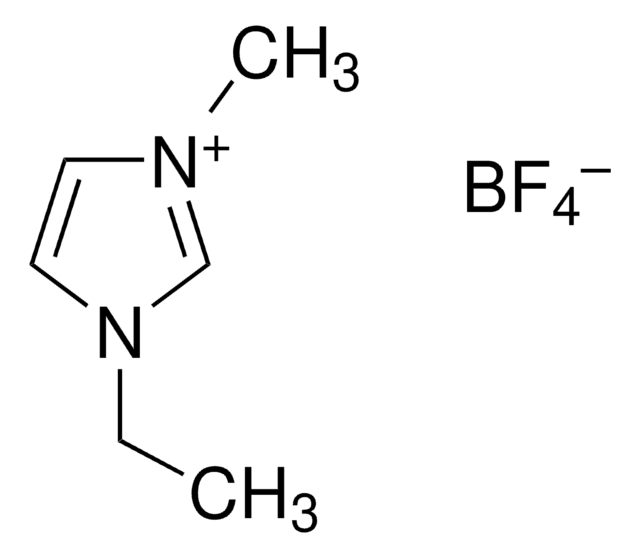900801
1-Ethyl-3-methylimidazolium bis(trifluoromethylsulfonyl)imide
≥99%, H2O ≤500 ppm
동의어(들):
1-Ethyl-3-methyl-1-H-imidazolium bis(trifluoromethansulfonyl)imide, EMIM BTI, EMIM TFSI, EMIMIm
About This Item
추천 제품
Quality Level
분석
≥99%
형태
liquid
구성
H2O, ≤500 ppm
불순물
≤500 ppm H2O
mp
≥−15 °C (lit.)
density
1.5236 g/cm3
응용 분야
battery manufacturing
SMILES string
CCn1cc[n+](C)c1.FC(F)(F)S(=O)(=O)[N-]S(=O)(=O)C(F)(F)F
InChI
1S/C6H11N2.C2F6NO4S2/c1-3-8-5-4-7(2)6-8;3-1(4,5)14(10,11)9-15(12,13)2(6,7)8/h4-6H,3H2,1-2H3;/q+1;-1
InChI key
LRESCJAINPKJTO-UHFFFAOYSA-N
유사한 제품을 찾으십니까? 방문 제품 비교 안내
일반 설명
애플리케이션
관련 제품
신호어
Danger
유해 및 위험 성명서
예방조치 성명서
Hazard Classifications
Acute Tox. 3 Oral
Storage Class Code
6.1C - Combustible acute toxic Cat.3 / toxic compounds or compounds which causing chronic effects
WGK
WGK 1
가장 최신 버전 중 하나를 선택하세요:
이미 열람한 고객
문서
Dr. Sun reviews the recent advances in solid-state rechargeable batteries and cover the fundamentals of solid electrolytes in solid-state batteries, the theory of ion conduction, and the structures and electrochemical processes of solid-state Li batteries.
Here, we present a short review of ionic liquid electrolytes used in state-of-the-art rechargeable batteries including high performance and low-cost aluminum batteries, non-flammable Li-based batteries, and high-cycling and stable dual-graphite batteries. We also outline the key issues explored so as to identify the future direction of IL development.
자사의 과학자팀은 생명 과학, 재료 과학, 화학 합성, 크로마토그래피, 분석 및 기타 많은 영역을 포함한 모든 과학 분야에 경험이 있습니다..
고객지원팀으로 연락바랍니다.